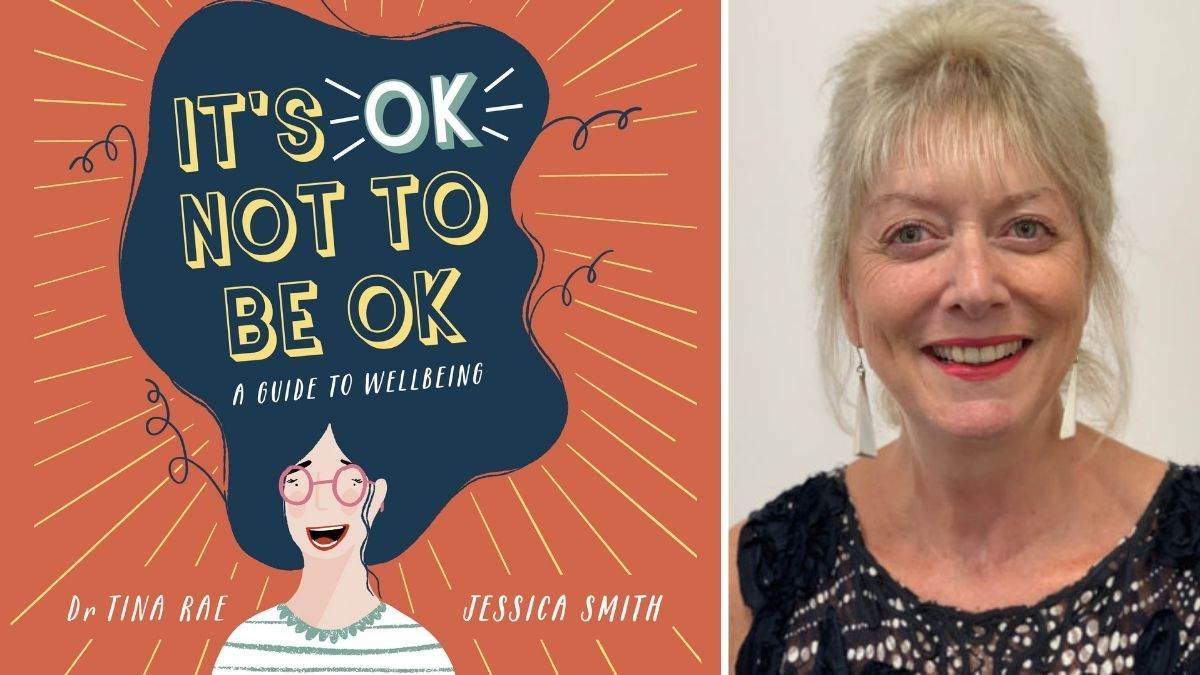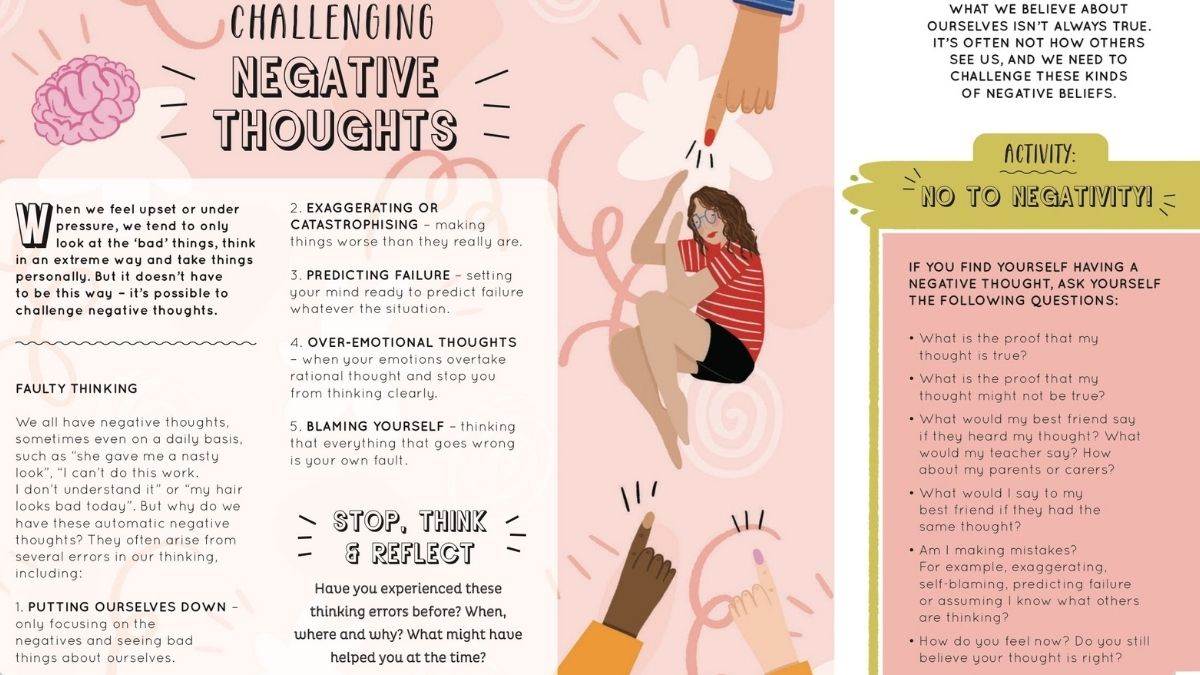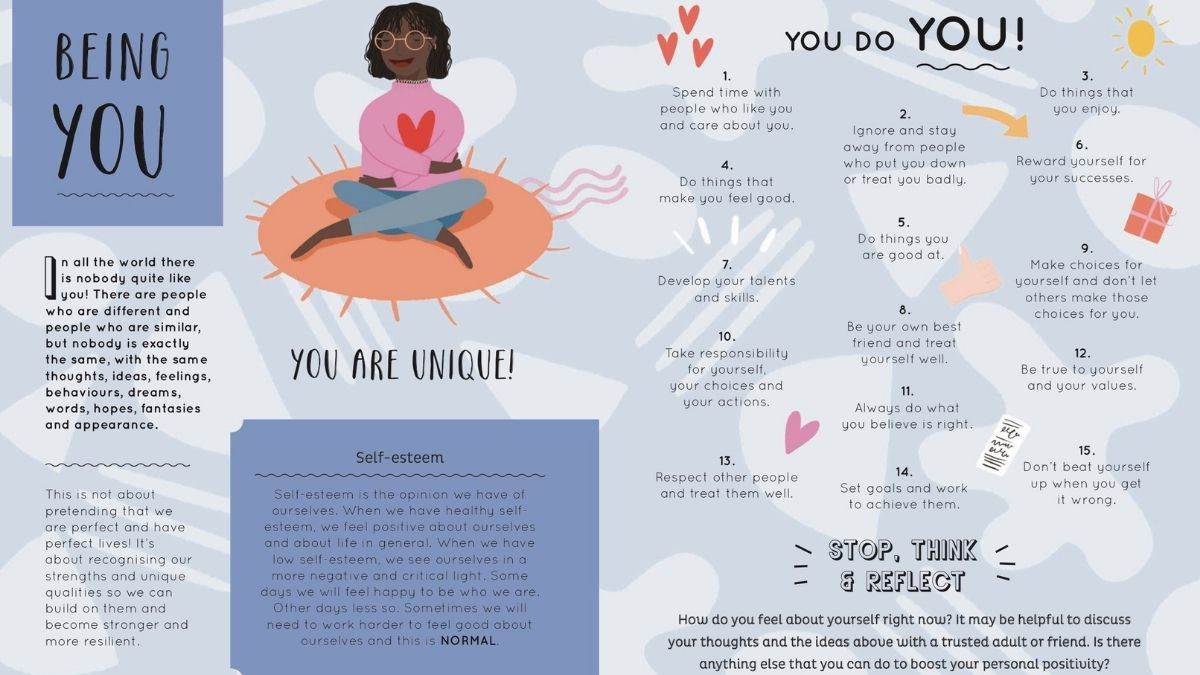It's OK Not To Be OK: Top tips for managing your child's anxiety
Published on: 25 January 2021 Author: Dr Tina Rae
We all have feelings of stress and anxiety from time to time, and children are no exception. The COVID-19 pandemic has caused huge upheaval across the world, and children who are currently unable to go to school or see their friends may need a bit of extra help to stay positive.
Child psychologist Dr Tina Rae shares some great tips for managing children's mental health, and our own, in uncertain times.

As I write this, we are continuing to navigate our way through a global pandemic, and this clearly has implications for both our children and us as their carers who ultimately want to ensure that their mental health is protected and supported.
Many of us will not feel safe, secure or simply ‘OK’.
This will make it much harder to support our children on an emotional level, and provide them with the safe base they all need.
We know from Young Minds' recent research into children’s mental health in this pandemic that stress and anxiety disorders are an increasing problem for our children. Together, we need to work at a more preventative level to support the development of key skills and strategies to manage such issues.
Effective stress management and relaxation strategies can be highly effective for many children. This is why I've included a range of helpful techniques in my new book, It's OK Not To Be OK.
What can we do as parents and carers?
Start with yourself! Alongside understanding how to manage stress and engage in relaxation, we also need to be able to learn how to turn negative thinking into more effective thinking. The process is straightforward, but it does take time and practice as we are usually creating a new habit.
It's important to remember that positive thinking skills are essential if we're to model such behaviours and attitudes to our children.
So, how can you think and behave in a more positive and optimistic way?
- Identify areas to change. If you want to become more optimistic and think more positively, first identify areas of your life that you usually think negatively about, whether it's work, your daily commute or a relationship. You can start small by focusing on one area to approach in a more positive way.
- Check yourself. Periodically during the day, stop and evaluate what you're thinking. If you find that your thoughts are mainly negative, try to find a way to put a positive spin on them.
- Be open to humour. Give yourself permission to smile or laugh, especially during difficult times. Seek humour in everyday situations and events. When you can laugh at life, you feel less stressed.
- Follow a healthy lifestyle. Aim to exercise for about 30 minutes, most days of the week. You can also break it up into 10-minute chunks of time during the day. Exercise can positively affect mood and reduce stress. Follow a healthy diet to fuel your mind and body.
- Surround yourself with positive people. Make sure the people in your life are positive and supportive, who you can depend on to give helpful advice and feedback. Negative people may increase your stress level and make you doubt your ability to manage stress in healthy ways.
- Practice positive self-talk. Start by following one simple rule: don't say anything to yourself that you wouldn't say to anyone else. Be gentle and encouraging with yourself. If a negative thought enters your mind, evaluate it rationally and respond with affirmations of what is good about you. Think about things you're thankful for in your life.
 Illustration by Jessica Smith
Illustration by Jessica Smith
Top tips for helping your child manage anxiety
There are also many ways we can help our children manage anxiety more effectively and you may wish to consider some of these (all included in the book!):
Support them to challenge underlying beliefs and thoughts. Negative and irrational beliefs and thoughts such as, "if I don't look perfect, no one will like me", or "I can't cope with difficult or scary situations", are significant factors in generating anxiety. Model and communicate ways to question and challenge anxiety-provoking thoughts and beliefs.
Support them to accept uncertainty. It's impossible to eliminate uncertainty, but you can help your child to be more accepting of uncertainty and ambiguity.
Be a role model. If you can manage your own anxiety, your child will see this and know that it can be managed and copy your strategies in their own behaviours.
Be patient. Sometimes the behaviours of anxious children and teens may seem unreasonable to others. It is important to remember that an anxious young person who cries or avoids situations is, in fact, responding instinctively to a perceived threat. Changing avoidant behaviours takes time and persistence. Be kind and never dismiss those fears and worries.
Balance reassurance with new ideas. When your child comes to you with something they are worried about, listen and understand what is happening. Explore with them what they could do to manage their fears.
Show your child simple relaxation techniques. Deep breathing, progressive muscle relaxation and meditation can be helpful as a way of learning how to better manage physical anxiety symptoms.
Encourage plenty of physical exercise and healthy amounts of sleep. When people are well-rested and relaxed, they will be in a better mental state to handle fears or worries.
Moderate intake of caffeine and high-sugar products. These increase levels of anxiety as they cause energy levels to spike and then crash. This leaves us feeling drained and less able to deal with negative thoughts.
Make time for things that your child enjoys and finds relaxing. These could be simple things like playing or listening to music, reading books or going for walks
Help them to face the things or situations they fear. Learning to face our fears, and reduce avoidance of feared objects and situations, is one of the most challenging parts of overcoming anxiety. Facing fears usually works best if it is undertaken gradually, a step at a time. Make use of an Anxiety Ladder!
Encourage children to ask for help when needed. Make sure that your child knows that there are people who can help if they find that they can't handle a problem on their own.
 Illustration by Jessica Smith
Illustration by Jessica Smith
Find your Calm to share your Calm!
Ultimately, we know that unregulated and stressed adults cannot effectively support and help children and young people who are also unregulated and stressed. It is impossible.
As the adults in the relationship, we need to find our own calm in order to share it with our children.
So, maybe you can read It's OK Not To Be OK alongside your child and be that role model - sharing your skills and knowledge and learning how to effectively self-regulate with your child. It really is the best way! Good luck.
Follow Dr Tina Rae on Twitter.
Topics: Fear, Personal/social issues, Everyday life, Mental health, Features, Teacher tips, Feelings
Books for talking about mental health
Help children talk about their worries and fears with our top books about mental health.
Book to support mental health awareness for ages 8 and over
Books that acknowledge or explore mental health issues can help to increase awareness, encourage dialogue, reduce stigma and develop real understanding. The following suggestions offer a spectrum of different perspectives and are well worth seeking out.
Books to help your child feel more calm and mindful
Why should adults get all the self-help books? You can also find some lovely reads and activities for youngsters who need a little extra support to feel relaxed, mindful, grateful, inspired and happy.
Books to help children understand depression in grown-ups
If you're a parent or carer with depression, the fiction books below may help your child talk about their feelings and understand what's going on a bit better.








